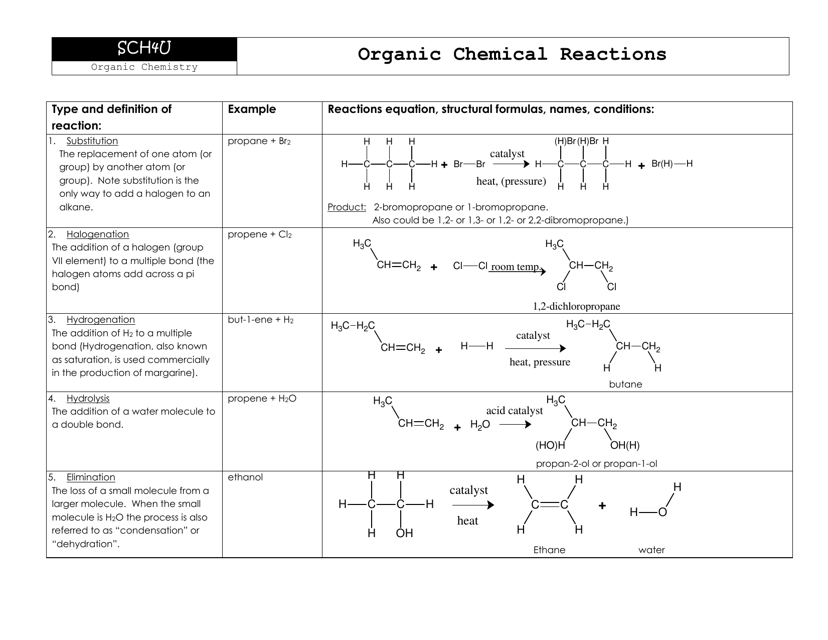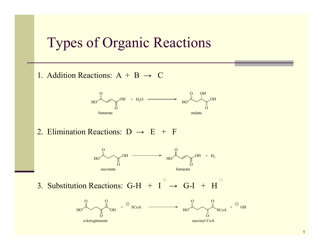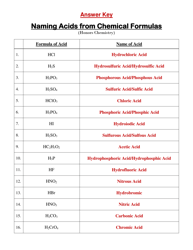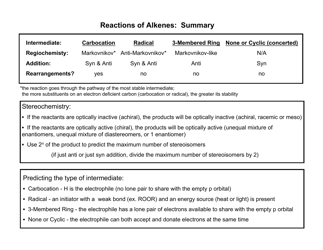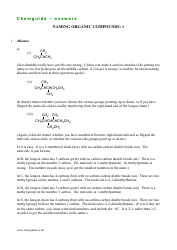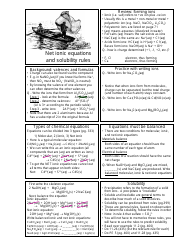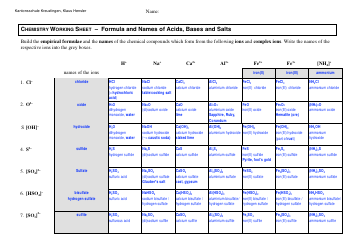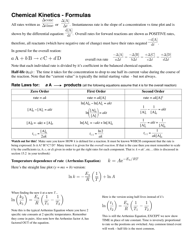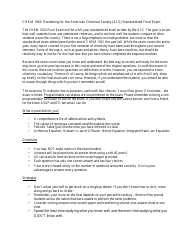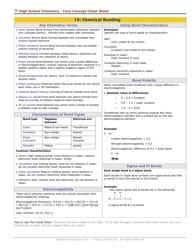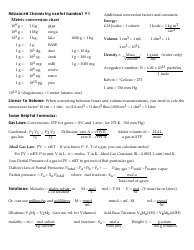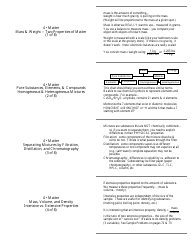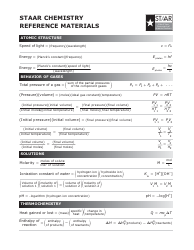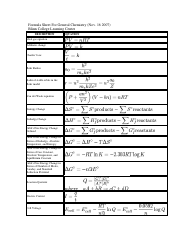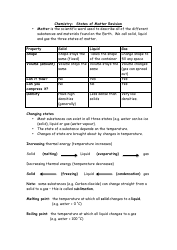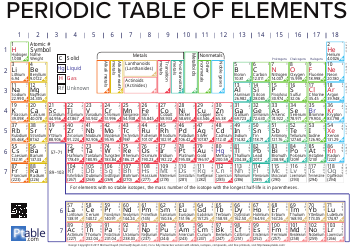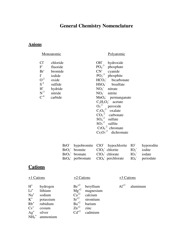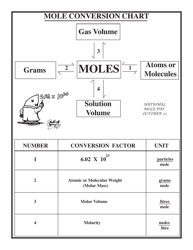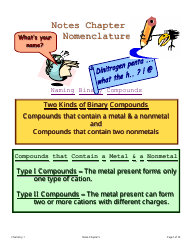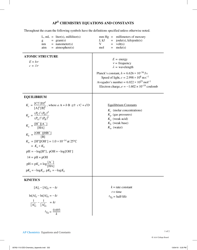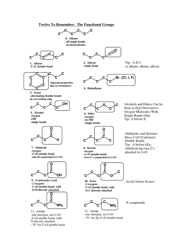Organic Chemical Reactions Cheat Sheet
The Organic Chemical Reactions Cheat Sheet is a reference document that provides a summary of various organic chemical reactions. It can be used by students and professionals in chemistry to quickly review and understand different reactions and their mechanisms.
FAQ
Q: What is organic chemistry?
A: Organic chemistry is the study of compounds that contain carbon.
Q: What are organic chemical reactions?
A: Organic chemical reactions are reactions that involve the breaking and forming of bonds in organic compounds.
Q: Why are organic chemical reactions important?
A: Organic chemical reactions are important because they allow us to synthesize new compounds, remove impurities from existing compounds, and understand the behavior of organic molecules.
Q: What are some common types of organic chemical reactions?
A: Some common types of organic chemical reactions include substitution, addition, elimination, and rearrangement reactions.
Q: What is a substitution reaction?
A: A substitution reaction is a reaction in which one atom or group is replaced by another atom or group.
Q: What is an addition reaction?
A: An addition reaction is a reaction in which two or more molecules combine to form a larger molecule.
Q: What is an elimination reaction?
A: An elimination reaction is a reaction in which a molecule loses a small molecule, such as water or hydrogen chloride.
Q: What is a rearrangement reaction?
A: A rearrangement reaction is a reaction in which the atoms in a molecule are rearranged to form a different molecule.
Q: How can I predict the products of organic chemical reactions?
A: Predicting the products of organic chemical reactions often requires knowledge of reaction mechanisms, functional groups, and reaction conditions.
